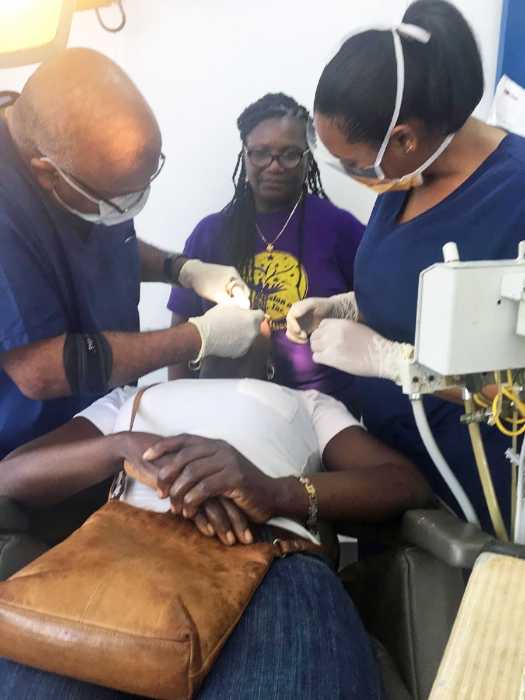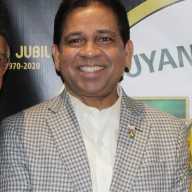A number of Caribbean states have underscored the need for action to improve food security, including current and future proposals to provide citizens with access to abundant, safe, and nutritious food.
The Organization of American States (OAS) said on Tuesday that was the consensus emerging from the second plenary of the 42nd OAS General Assembly in Cochabamba, Bolivia.
The heads of delegation of Haiti, Trinidad and Tobago, Guyana, Suriname, St. Kitts and Nevis, and Grenada, among other countries, gave an overview of existing obstacles to food security, noting steps taken by their countries to combat malnutrition and chronic hunger, the OAS said.
It said member state representatives also pledged to seek regional solutions, through the OAS.
Haiti’s Prime Minister and Minister of Foreign Affairs, Laurent Lamothe, thanked regional countries for helping his country deal with the devastating effects of the massive January 2010 earthquake.
“We are now beginning to sense a new breath of life in Haiti,” he said. “The government that I am honored to lead has set itself a basic priority of fighting extreme poverty.
“It is also undoubtedly one of the major goals we have set ourselves in our country, together with the elimination of poverty and inequalities that affect our population,” added Lamothe about food security.
Neil Parsan, Permanent Representative of Trinidad and Tobago to the OAS, said that food security was ultimately the responsibility of each national government, and should be reflected as a priority in the budgets of each country.
He said the issue of food security, combined with the intrinsic vulnerability of our region, constitutes a “serious threat to the wellbeing of our peoples.”
Parson lamented his country’s high level of dependence on foreign food sources, but was optimistic about the future.
He said Trinidad and Tobago remained optimistic that, with national, hemispheric, and international action, “we can ensure that our citizens have reliable access to the food they need.”
Guyana’s Foreign Minister, Carolyn Rodrigues-Birkett, warned that food insecurity represented scary problems for humanity, and could unfold more quickly than expected.
She identified part of the problem as a gap between food production and demand “due to the nature of international food trade and price volatility.”
Rodriques-Birkett said her delegation had, therefore, urged the OAS to strengthen coordination with the Inter-American Institute for Cooperation on Agriculture (IICA) to promote research and development, strengthen national capacities, and promote science, technology, and innovation.
Niermala Hindori-Badrising, the Permanent Representative of Suriname to the OAS, said that the issue of food security and access to food should be a priority in national and international policies.
In this regard, she said that food security in the region depended on prices and their impact on the accessibility to food, especially for the most vulnerable groups, “which explains why our region was the most unequal in the world.”
The Surinamese diplomat added that one measure to solve this problem was regional and international cooperation, “and an obvious need to invest in agricultural technology.”
Hindori-Badrising urged that priority be given to public-private partnership to promote these policies, predicting that food security-related issues would continue to occupy the agenda of regional countries.
St. Kitts and Nevis’ Ambassador Jacinth Henry-Martin said that because of the impact of natural disasters on food production, her country needed to seek international help to manage and mitigate the risks caused by natural disasters.
Even amidst the growing uncertainty in the global food market, characterized by natural disasters, reliance on biofuels, and escalating food prices, this hemisphere has been able to feed itself, she noted.
Henry-Martin added that dialogue among the nations of the Americas should be the way to reconcile differences.
“There is no cost whatsoever but, to the contrary, it is always worth the cost of investing in peace,” she said.
The Permanent Representative of Grenada to the OAS, Gillian Bristol, congratulated the government of Bolivia for choosing the theme of food security, and urged the countries of the hemisphere to implement effective policies to ensure that no one suffer from hunger any more.
Bristol urged that the region move quickly to “achieve this right,” citing agribusiness as one of the five pillars of her country’s economic development.
She said Grenada has developed small farms and fisheries, which, together with tourism, “have the potential to strengthen the economy of Grenada.”
Bistol said that Grenada was pledging to undertake with the other OAS member states a commitment to collaborate on agricultural innovation, renewable resource management, marketing, and control of price volatility in the hemisphere.























